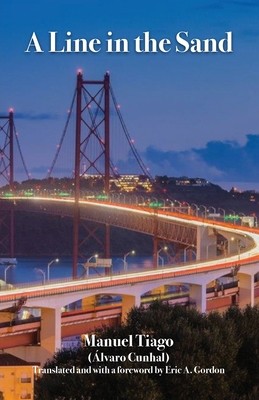
- We will send in 10–14 business days.
- Author: Manuel Tiago
- Publisher: International Publishers
- ISBN-10: 0717800326
- ISBN-13: 9780717800322
- Format: 14 x 21.6 x 0.7 cm, minkšti viršeliai
- Language: English
- SAVE -10% with code: EXTRA
Reviews
Description
This novel is entirely based on the factual events of September 28, 1974, and the leadup to it. The President of the Republic, General António de SpÃnola, attempted to assume personal power over the emergent Portuguese democracy following the overthrow of fascism just the previous April. Of course, he was not acting alone in calling for multitudes of people to flood Lisbon, the capital city, on September 28 from all over the country (free transportation and tickets to the soccer game provided by the government!) with the demand to end parliamentary democracy and hand over extraordinary powers to a single military officer and put an end to "communism" and "anarchy." Behind him were the same powerful forces in politics, industry, agriculture, business, the financial sector, the media, and sectors tied to the colonial economy and to NATO that had backed the fascist state for almost fifty years. The Portuguese Communist Party, with its allies in the labor movement, organized massive brigades to nonviolently block the bridges and roadways leading into Lisbon.
EXTRA 10 % discount with code: EXTRA
The promotion ends in 23d.14:16:03
The discount code is valid when purchasing from 10 €. Discounts do not stack.
- Author: Manuel Tiago
- Publisher: International Publishers
- ISBN-10: 0717800326
- ISBN-13: 9780717800322
- Format: 14 x 21.6 x 0.7 cm, minkšti viršeliai
- Language: English English
This novel is entirely based on the factual events of September 28, 1974, and the leadup to it. The President of the Republic, General António de SpÃnola, attempted to assume personal power over the emergent Portuguese democracy following the overthrow of fascism just the previous April. Of course, he was not acting alone in calling for multitudes of people to flood Lisbon, the capital city, on September 28 from all over the country (free transportation and tickets to the soccer game provided by the government!) with the demand to end parliamentary democracy and hand over extraordinary powers to a single military officer and put an end to "communism" and "anarchy." Behind him were the same powerful forces in politics, industry, agriculture, business, the financial sector, the media, and sectors tied to the colonial economy and to NATO that had backed the fascist state for almost fifty years. The Portuguese Communist Party, with its allies in the labor movement, organized massive brigades to nonviolently block the bridges and roadways leading into Lisbon.


Reviews